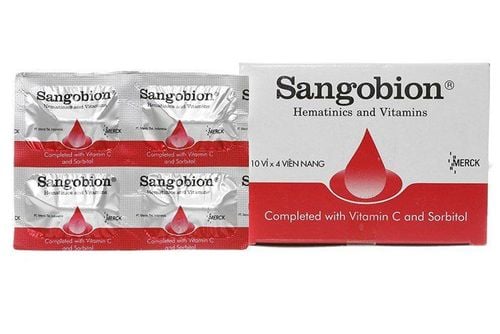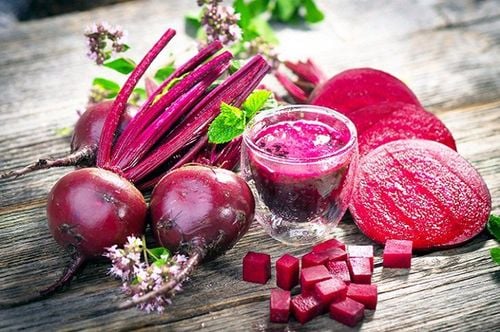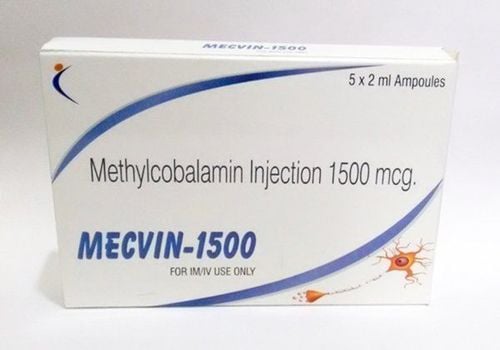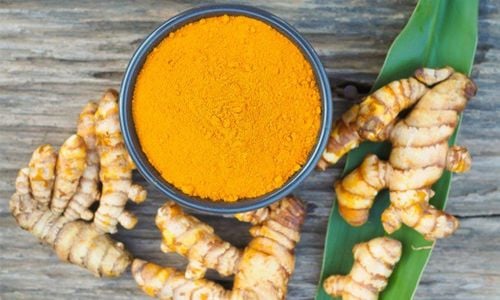Iron-deficiency anemia is one of the most common forms of anemia. It occurs when the body does not have enough iron to support red blood cells in their critical role of delivering oxygen to tissues throughout the body. This article provides detailed information on iron-deficiency anemia, its causes, symptoms, diagnosis, and treatment.
1. What is iron-deficiency anemia?
Iron-deficiency anemia is the most prevalent type of anemia. It occurs when the body fails to produce enough healthy red blood cells or when these cells do not function properly. This condition arises due to a lack of iron, which is essential for producing hemoglobin—a component of red blood cells responsible for carrying oxygen throughout the bloodstream to various tissues and organs.
2. Who is at risk for iron-deficiency anemia?
Iron-deficiency anemia affects women more frequently than men. The highest risk groups include:
- Pregnant women: One in six pregnant women experiences iron-deficiency anemia. Increased iron is needed during pregnancy to support fetal growth.
- Women with heavy menstrual bleeding: Up to 5% of women of reproductive age suffer from iron-deficiency anemia due to excessive blood loss during menstruation.
- Infants, young children, and adolescents - especially females - are also at higher risk. It is important to ensure children receive adequate iron appropriate to their age.
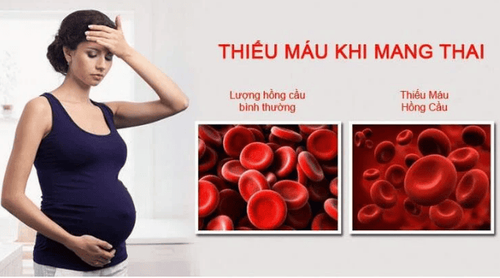
3. What are the symptoms of iron-deficiency anemia?
Iron-deficiency anemia typically develops gradually. Early stages may present with no symptoms or only mild ones. As the condition worsens, individuals may experience the following:
- Fatigue (a very common symptom)
- Weakness (also very common)
- Dizziness
- Headaches
- Low body temperature
- Pale or yellowish skin
- Rapid or irregular heartbeat
- Shortness of breath or chest pain, especially during physical activity
- Brittle nails
4. What causes iron-deficiency anemia?
Low iron levels in women can stem from several factors, including:
- Blood loss: This is the most common cause. Blood loss depletes red blood cells and iron faster than the body can replace them. Causes include:
- Gastrointestinal issues such as ulcers, colon polyps, or colon cancer
- Long-term use of aspirin or over-the-counter pain relievers
- Frequent blood donations without sufficient recovery time
- Heavy or prolonged menstrual periods
- Uterine fibroids, noncancerous growths in the uterus that cause heavy bleeding
- Increased iron demand during pregnancy: Pregnancy increases iron requirements to support fetal development.
- Insufficient iron intake: While iron from animal-based foods (e.g., meat, poultry, fish) is absorbed more efficiently, vegetarians and vegans must rely on plant-based sources of iron and ensure adequate intake.
- Iron absorption disorders: Certain medical conditions, such as Crohn’s disease or celiac disease, or surgeries like gastric bypass, can impair the body’s ability to absorb iron from food.
5. How is iron-deficiency anemia diagnosed?
If you suspect iron-deficiency anemia, consult your healthcare provider. Diagnosis typically involves:
- Reviewing your medical history, including menstrual patterns and gastrointestinal issues (e.g., blood in stool).
- Conducting a physical examination.
- Discussing dietary habits, medications, and family health history.
- Performing blood tests: A complete blood count (CBC) evaluates the composition of your blood. If anemia is detected, additional tests measure blood iron levels to confirm iron deficiency.
if you are a person with iron-deficiency anemia, doctor might want to perform other tests for exact causes
6. Do I need testing for iron-deficiency anemia?
It’s advisable to undergo testing if you experience heavy menstrual bleeding or have conditions like Crohn’s disease or celiac disease. Consult your doctor as part of routine health checkups.
7. How is iron-deficiency anemia treated?
Treatment depends on the underlying cause:
Gastrointestinal blood loss: Conditions such as ulcers may require antibiotics or other medications. Polyps or tumors may necessitate surgical removal.
Heavy menstrual bleeding: Hormonal contraceptives can reduce excessive menstrual flow. If bleeding persists, surgical options such as endometrial ablation (removal or destruction of the uterine lining) or hysterectomy (removal of the uterus) may be recommended.
Increased iron requirements. If you are having problems in iron absorption or iron deficiency without severe anemia, Treatment may include:
- Iron supplements to quickly restore iron levels. Do not take iron supplements without consulting your doctor.
- Dietary adjustments to include iron-rich foods such as meat, fish, eggs, legumes, and iron-fortified products (search for cereal providing 100% daily iron)
- Increased intake of vitamin C-rich foods (e.g., oranges, broccoli, tomatoes) to enhance iron absorption.
- In severe cases, where symptoms such as chest pain or severe fatigue occur, iron infusions or blood transfusions may be required.
8. What should I know about iron supplements?
Iron supplements can have side effects like stomach pain, constipation, or diarrhea. Do not use it without consulting your doctor or nurse. It might cause some complications, including stomachache, constipation and diarrhea, also, tooth discoloration. To minimize these:
- Start with half the recommended dose and gradually increase.
- Split the dose into smaller portions taken throughout the day.
- Take iron with vitamin C-rich foods (e.g., orange juice) to enhance absorption.
- If one type of iron pill causes side effects, ask your doctor for a different type.
- For liquid iron supplements, direct the liquid toward the back of your mouth to prevent staining your teeth and brush your teeth afterward.
9. What happens if iron-deficiency anemia is left untreated?
Untreated iron-deficiency anemia can lead to severe health complications. Insufficient oxygen in the body may damage vital organs. The heart must work harder to compensate for low red blood cell or hemoglobin levels, potentially leading to heart problems.
Additionally, iron-deficiency anemia can cause complications during pregnancy.
10. How can I prevent iron-deficiency anemia?
To reduce your risk:
- Treat underlying causes of blood loss, such as heavy periods or gastrointestinal conditions such as frequent diarrhea or hematochezia
- Consume iron-rich foods, including lean meats, dark leafy greens, and legumes.
- Enhance iron absorption with vitamin C-rich foods (e.g., oranges, strawberries, broccoli).
- Choose healthy foods. Most people who choose healthy, balanced foods get the iron and vitamins their bodies need from the foods they eat.
- Avoid drinking tea or coffee with meals, as these inhibit iron absorption.
- Consult your doctor about calcium supplements, as calcium can interfere with iron absorption.
11. How much iron do I need daily?
Daily iron requirements vary by age and life stage:
- Ages 14-18: 15 mg (women), 27 mg (pregnant), 10 mg (breastfeeding)
- Ages 19-50: 18 mg (women), 27 mg (pregnant), 9 mg (breastfeeding)
- Age 51+: 8 mg (women)
12. Which foods are high in iron?
Iron-rich foods include:
- Fortified breakfast cereals
- Oysters
- Canned white beans
- Dark chocolate
- Beef liver
- Spinach
- Tofu
- Kidney beans
- Lean beef
- Baked potatoes
13. Do I need extra iron during pregnancy?
It is essential to supplement iron during pregnancy because the body’s demand for iron increases significantly to support fetal development. In fact, pregnant women require nearly twice as much iron as non-pregnant women. Insufficient iron intake during pregnancy increases the risk of preterm birth and low birth weight (below 5 ½ pounds). Preterm birth, a leading cause of infant mortality, as well as low birth weight, both heighten the likelihood of health complications and developmental delays for the baby at birth and throughout childhood.
If you are pregnant, consult your doctor regarding the following steps:
- Take 27 mg of iron daily. Use a prenatal vitamin that contains iron or discuss iron supplements (tablets) with your healthcare provider.
- Screen for iron-deficiency anemia.
- Monitor your iron levels 4 to 6 weeks after delivery to ensure recovery from any anemia that may have developed during pregnancy.
14. Do I need extra iron while breastfeeding?
No, you do not need additional iron while breastfeeding. In fact, your iron requirements decrease compared to before pregnancy. The recommended daily iron intake for breastfeeding mothers is 10 milligrams for adolescent mothers aged 14–18 years and 9 milligrams for women over 18 years old.
You require less iron during breastfeeding because iron loss through menstruation is minimal or absent. Many breastfeeding women do not experience menstrual cycles, or if they do, their periods are typically light. Furthermore, if you consumed adequate iron during pregnancy (27 milligrams per day), your breast milk will naturally supply sufficient iron to meet your baby’s needs.
15. Does menopause hormone therapy affect iron needs?
Menopausal Hormone Therapy can influence the body’s iron levels. If you are still menstruating and undergoing hormone therapy during menopause, you may require more iron than postmenopausal women who are not using hormone therapy.
16. Can birth control impact my risk for iron-deficiency anemia?
Hormonal contraceptives, such as pills, patches, injections, or hormonal intrauterine devices (IUDs), are often used to treat women with heavy menstrual bleeding. Lighter periods can help lower the risk of iron-deficiency anemia.
Conversely, the copper IUD (Paragard), which does not contain hormones, may cause heavier menstrual flow, increasing the risk of iron-deficiency anemia.
It’s essential to discuss with your doctor or nurse the risks of anemia and whether hormonal contraceptives might be beneficial for you.
17. How can vegetarians ensure sufficient iron intake?
To help ensure adequate iron intake, incorporate iron-rich foods into your diet more frequently. Vegetarians need to consume more dietary iron compared to meat-eaters because the body absorbs iron from animal sources more efficiently than from plant-based foods.
Iron sources suitable for vegetarians include:
- Iron-fortified cereals and breads
- Lentils and beans
- Dark chocolate
- Dark leafy greens, such as spinach and broccoli
- Tofu
- Green peas
- Canned tomatoes
- Speak with your doctor or nurse to determine whether you are getting sufficient iron. For most individuals, dietary sources provide adequate iron.
18. Can I get too much iron?
However, it is possible for the body to receive too much iron, which can harm the liver, heart, and pancreas. Avoid consuming more than 45 mg of iron per day unless your doctor recommends a higher dose.
Some individuals absorb excessive iron due to a condition called hereditary hemochromatosis. Learn more about hemochromatosis, its risk factors, and available treatment options.
Excess iron can also result from iron supplements (when combined with dietary iron) or from frequent blood transfusions.
References: womenshealth.gov
To arrange an appointment, please call HOTLINE or make your reservation directly HERE. You may also download the MyVinmec app to schedule appointments faster and manage your reservations more conveniently.




